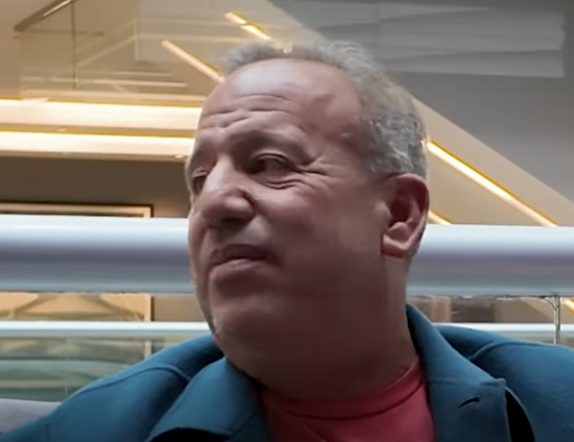One day, a visitor (likely a businessman or entrepreneur) approaches him with what seems like an incredible opportunity. The visitor can’t comprehend why someone would “waste” such potential. He offers to invest in the fisherman’s business, explaining how they could expand with multiple boats, catch more fish, develop distribution networks, and ultimately make millions.
The fisherman’s response is what makes this story so powerful. He simply asks, “What would I do with all that money?” The businessman enthusiastically explains that with all that wealth, the fisherman could enjoy breakfast with his family, play cards with friends, take afternoon naps, and spend evenings with loved ones.
Do you see the irony? The fisherman already has everything the businessman promises as the reward for years of hard work and sacrifice.
The True Meaning of Success
In my years working with high-profile athletes and business leaders at Leigh Steinberg Sports & Entertainment, I’ve witnessed countless individuals chase wealth at the expense of what truly matters. Many achieve extraordinary financial success only to realize they’ve sacrificed the very things they were working for – time with family, personal health, meaningful relationships, and simple daily pleasures.
I believe we’ve created a dangerous equation in our society:
- More money = more success
- More success = more happiness
- Therefore, more money = more happiness
But this equation fails to account for what I call “the fisherman’s paradox” – the reality that pursuing more can actually give us less of what truly matters.
Finding Your Enough
The most important question we can ask ourselves isn’t “How can I make more?” but rather “What is my enough?” For the fisherman, enough meant:
- Sufficient food for his family
- Quality time with loved ones
- Meaningful social connections
- Rest and personal enjoyment
- A life of balance and contentment
Understanding your “enough” doesn’t mean lacking ambition. I’ve always been driven to achieve and create value. But I’ve learned that ambition without boundaries becomes an endless treadmill where the finish line constantly moves further away.
When I reflect on my own journey, my greatest regrets aren’t about missed business opportunities or deals I didn’t close. They’re about the birthdays, anniversaries, and everyday moments I missed while chasing “more” without a clear definition of “enough.”
Redefining Success On Your Terms
The fisherman teaches us that true wealth isn’t measured by bank accounts but by how we spend our time and with whom we spend it. This doesn’t mean we should all abandon our careers and go fishing. Rather, it challenges us to define success on our own terms.
For some, fulfillment might come from building something significant that impacts millions. For others, it might look more like the fisherman’s life – simple, connected, and present. Neither path is inherently better, but problems arise when we blindly follow cultural definitions of success without questioning if they align with our personal values.
I encourage you to take a moment today to consider your own version of “enough.” What truly brings you joy? What would you regret missing if you were looking back on your life? Are you structuring your days to prioritize those things?
The fisherman knew something many of us spend decades learning: happiness isn’t waiting at the end of a long journey of accumulation – it’s available right now if we’re wise enough to recognize it.
Frequently Asked Questions
Q: Is this story suggesting we shouldn’t pursue financial success?
Not at all. The message isn’t anti-ambition or anti-wealth. Rather, it encourages us to be intentional about why we’re pursuing success and to define what “enough” means to us personally. Financial security is important, but not at the expense of the very things that make life worth living.
Q: How can I apply the fisherman’s wisdom in my own busy life?
Start by identifying what truly matters to you – your core values and priorities. Then regularly audit how you spend your time and energy to see if they align with those values. Consider setting boundaries around work hours, technology use, and commitments that pull you away from what’s most important.
Q: Doesn’t this philosophy only work for people who already have financial security?
The fisherman wasn’t wealthy – he simply had enough to meet his needs. While basic financial security is important, research shows that happiness doesn’t significantly increase beyond the point where our essential needs are met. Many people with modest incomes find greater fulfillment than those with vast wealth because they’ve defined what “enough” means for them.
Q: How do you balance ambition with contentment?
This is the central challenge! I believe healthy ambition should be purpose-driven rather than ego-driven. Ask yourself what impact you want to have and why. Set goals that align with your values, but practice gratitude for what you already have. Remember that ambition and contentment aren’t opposites – they can coexist when your ambition serves something greater than just accumulation.
Q: What if my current job demands long hours that take me away from what matters?
This is a reality for many people. Consider whether your current sacrifice serves a larger purpose with a defined endpoint (like education or building toward a more balanced future). If not, it might be time to explore alternatives that better align with your values – whether that’s a different role, setting boundaries in your current position, or reimagining your career path entirely.







